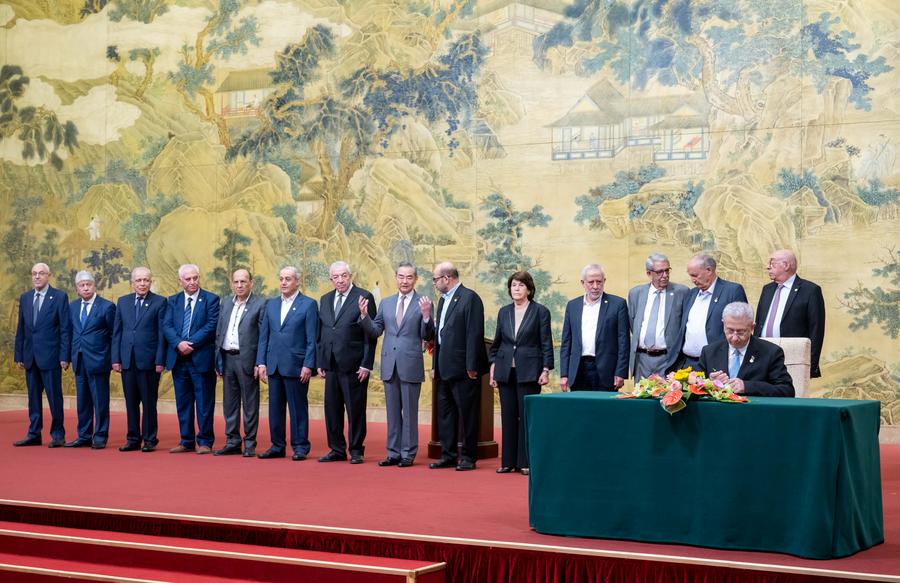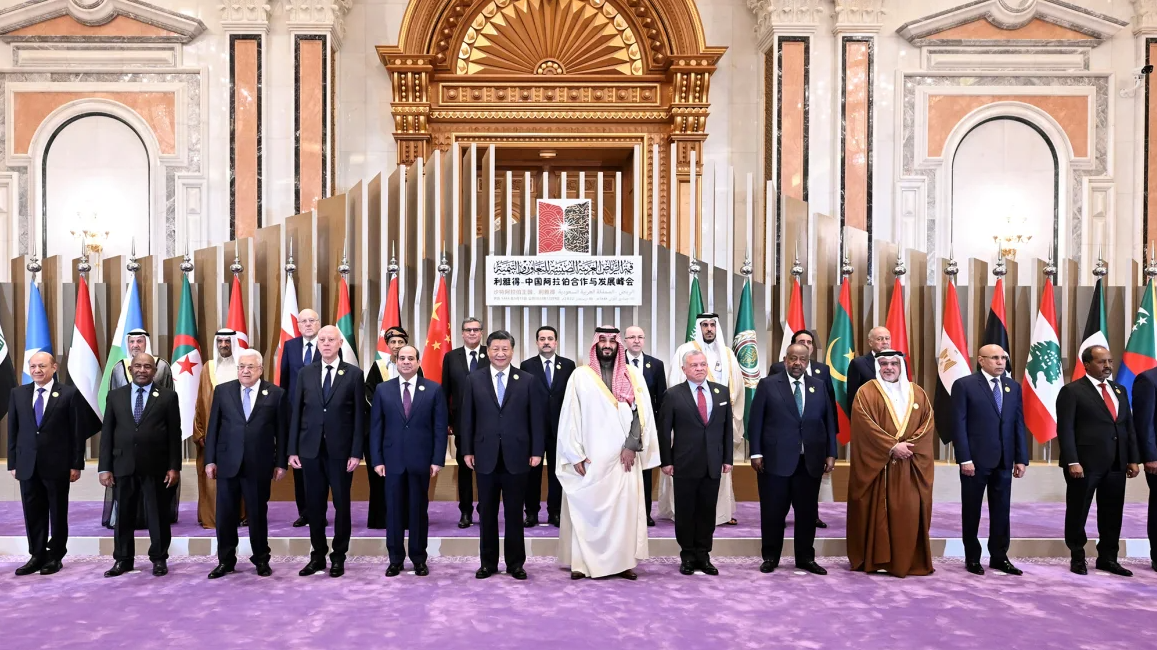Ghulam Ali, Deputy Director, Hong Kong Research Center for Asian Studies
Dec 03, 2024
The unity of the Gulf states, their diversified partnerships and their degree of assertiveness — along with China’s deepened relationships in the region — may constrain U.S. dominance. Even so, China must devise policies to navigate the unexpected strategic challenges it might encounter.

Zhou Yiqi, Associate Fellow, Center for West Asian & African Studies, Shanghai Institutes for International Studies
Oct 18, 2024
China’s efforts to mediate between various Palestinian groups is a first step toward bridging the divide between Palestine and Israel. The U.S. must also take ownership of its responsibility and similarly employ its significant influence over Israel.
Ghulam Ali, Deputy Director, Hong Kong Research Center for Asian Studies
Sep 21, 2024
Saudi Arabia and the UAE are undergoing transformations in which China can play an important role. Premier Li Qiang’s visit reinforced them by focusing on trade, business, investment and diplomacy. This reflects China’s broader policy prioritizing economic cooperation over geopolitical entanglement.

Wang Zhen, Research Professor, Shanghai Academy of Social Sciences
Aug 08, 2024
Many people in the West tend to view the expansion of China’s influence in the Middle East through the lens of great power rivalry. China rejects this concept, and its diplomatic efforts have helped to prevent the escalation of regional crises.

Jin Liangxiang, Senior Research Fellow, Shanghai Institute of Int'l Studies
May 23, 2024
China is deeply intertwined with Saudi Arabia and other GCC countries. It is contributing to regional security and will be one of the major sources of the region’s future wealth. And, unlike the West, it will always respect the way of life in the region, including the dominant religion.
Richard Javad Heydarian, Professorial Chairholder in Geopolitics, Polytechnic University of the Philippines
Feb 26, 2024
A New Cold War is not in the interest of either the U.S. or China, particularly given the volatility in the Middle East. In fact, the two nations share common interests in the region, and the threat of widespread conflict should inspire an element of strategic sobriety and tactical cooperation.
Leonardo Dinic, Advisor to the CroAsia Institute
Feb 05, 2024
The role of the U.S. and China is pivotal in shaping the potential outcomes of the Israel-Gaza conflict, and while China already supports more balanced developments, Washington should take notes and implement a diplomatic solution that considers the needs of all peoples and communities.
Richard Javad Heydarian, Professorial Chairholder in Geopolitics, Polytechnic University of the Philippines
Dec 01, 2023
The ongoing fighting between Israel and Palestine has led to soaring tensions in the Middle East, with additional backlash against America’s role in backing Israel’s actions. China seems poised to take this opportunity to enhance its own interests among regional powers.
Nathaniel Schochet, Analyst and CJPA Global Advisors
Earl Carr, Founder and Chief Executive Officer at CJPA Global Advisors
Nov 27, 2023
Given the latest conflict and humanitarian crisis in the middle east, and the risk of the conflict expanding to involve other state actors throughout the region, Nathaniel Schochet and Earl Carr explore the possible opportunities, persistent limitations and the core geostrategic objectives of China’s mediation role in the 2023 Israel-Hamas War and elsewhere.
Dan Steinbock, Founder, Difference Group
Oct 13, 2023
Despite massive aid, U.S. policies have failed to achieve peace in Israel, West Bank and Gaza, thus eroding U.S. credibility in the region. Why did U.S. policies fail? Could Chinese policies contribute to peace?